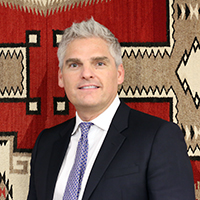As we celebrate Pride Month in June, the Indian Health Service recognizes the diversity of our American Indian and Alaska Native patients. The IHS Office of Information Technology, Office of Resource Access and Partnerships, and Office of Clinical and Preventive Services have launched a collaborative initiative to train staff in the collection of voluntary sexual orientation and gender identity data in order to identify essential health services.
Without this information, Two Spirit and LGBTQ patients and their specific health care needs cannot be identified, any health disparities cannot be addressed, and essential health care services may not be delivered. The services can include preventive screenings, assessments of risk for sexually transmitted infections and HIV, discussions about parenting, and effective interventions for behavioral health concerns that can be related to the experiences of anti-Two Spirit and LGBTQ stigma.
Collecting this data in electronic health records is essential to providing high-quality, patient-centered care. The data collection has been recommended by both the National Academy of Medicine and The Joint Commission as a way to learn more about the populations we serve and to measure the quality of care provided to Two-Spirit/LGBTQ people. Some patients may question the relevance of being asked about their sex listed at birth or their sexual orientation, but providing this information is strictly voluntary, and patients are not required to provide the information.
This data collection supports the 2015 Certified Health Information Technology rules from the Office of the National Coordinator for Health Information Technology that require all electronic health record systems to allow users to record, change, and access structured data on Sexual Orientation and General Identity (SOGI). The collection of additional data is confidential and will provide patient care teams with more information that supports a respectful and productive engagement with Two Spirit/lesbian, gay, bisexual, transgender, and queer patients and identify appropriate approaches to healthcare services.
IHS sites at Cass Lake Hospital in Cass Lake, Minnesota; Chinle Comprehensive Health Care Center in Chinle, Arizona; and Claremore Indian Hospital in Claremore, Oklahoma will be the first three to collect the voluntary information, beginning June 23.
As we strive to create a safe, inclusive, and welcoming space for our patients, we realize that it may not always feel safe for Two-Spirit and LGBTQ individuals. Our efforts for inclusion must go beyond the creation of safe physical spaces. Many health care providers do not routinely collect this information from their patients.
An opportunity for Two-Spirit and LGBTQ people to share information about their SOGI in a welcoming and patient-centered environment opens the door to a more trusting patient-provider relationship and improved health outcomes for our patients.
Related content:
IHS Lesbian, Gay, Bisexual, Transgender, Questioning and Two Spirit Health
IHS Electronic Health Record
Electronic Health Record Policies and Procedures



